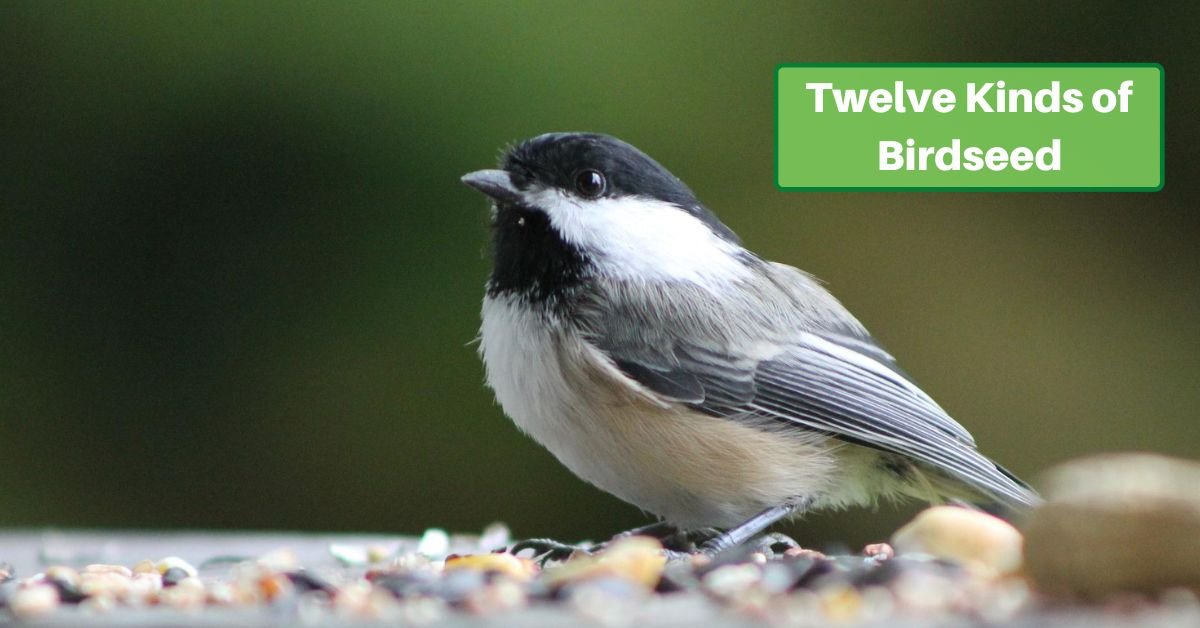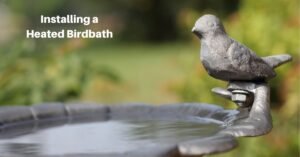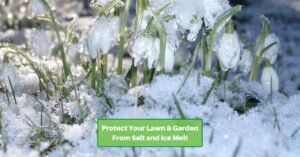Birdseed is great for a lot of reasons. Most importantly, it helps provide food for the birds! Especially in urban and suburban areas, natural food sources are rare. By providing seed, you can help keep the birds healthy.
Of course, that means the birds will be coming to you. You’ll get to enjoy their beautiful colors, graceful presence, and often, their wonderful songs. That’s their way of paying you back for looking out for them!
Be sure to research what birds pass through your area and the types of feeders appropriate for the birds and the seed.
There are many types of seed, although not all birds like – or can even eat – all of them. Here are twelve of the best choices:
Canary seed
We’ll start with one of the less-common seeds – and that’s partially because of the types of birds they attract. House sparrows are huge fans of canary seed! So are cowbirds. These aren’t particularly attractive and can be annoying. But if you’re concerned about their well-being, canary seed is a great choice.
Milo
Sometimes called sorghum, milo is popular with many species of birds in the western US. Curve-billed thrashers and Steller’s Jays are fans, as are Gambel’s Quails. On the other hand, so are cowbirds.
Tray feeders are good for this, or you can throw it on the ground.
Black Oil Sunflower
Birds of many types love black oil sunflower seeds! They’re especially helpful in winter because their high oil and fat content keep our feathered friends warm.
The shell on these seeds is thin, so it’s not hard to open, even for birds with small beaks. Finches, titmice, grosbeaks, and chickadees are big fans. So are cardinals, jays, and sparrows.
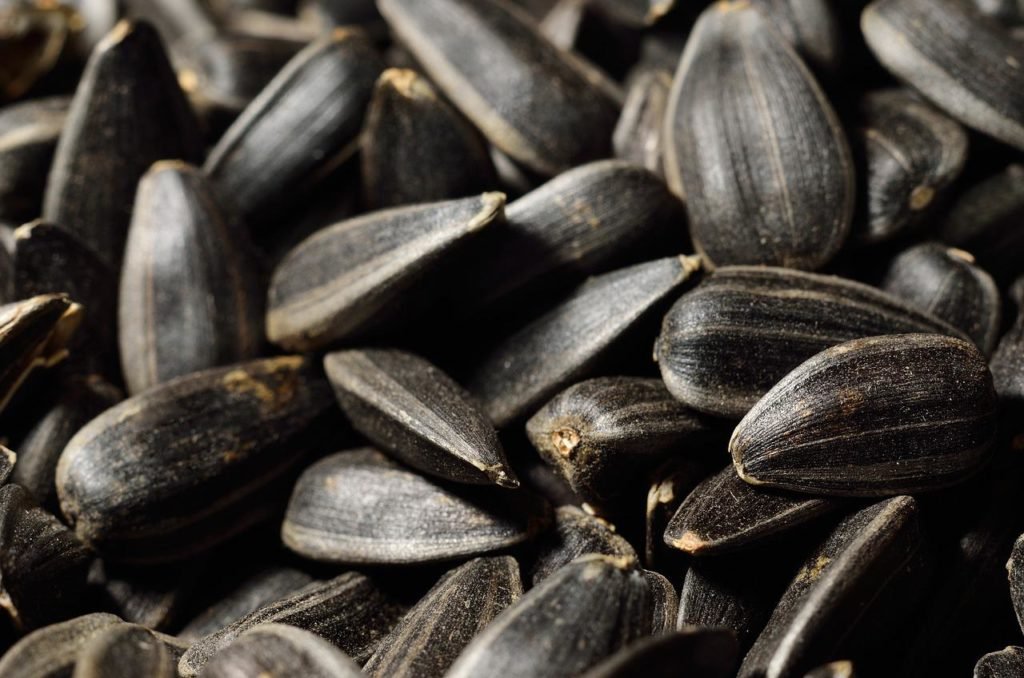
Striped Sunflower
Striped sunflower seeds are tougher to open than the Black Oil variety, so only birds with stronger, larger beaks can enjoy them. But they’re also high in fat and jays, grackles, and cardinals appreciate them.
Squirrels also love these (as well as Black Oil sunflower seeds), so a squirrel-proof feeder is highly recommended.
Hulled Sunflower Seeds
Ok, this isn’t a different type of seed, but it’s less hassle for many birds. It has all the benefits of regular sunflower seeds, but a wider variety of birds can enjoy it since they won’t have to fight with a shell.
Safflower
These large, white seeds are shaped something like sunflower seeds. Their hard shell means only birds with strong beaks can crack them. These include doves, jays, woodpeckers, cardinals, nuthatches, and house finches.
They’re also good because they aren’t tasty to raccoons, squirrels, and chipmunks.
For these, you’ll need a feeder that could support sunflower seeds.
Rapeseed
Rapeseed isn’t as common as other seeds, but it’s a favorite of finches, juncos, doves, and quails. It’s also known as canola seed.
Nyjer
Nyjer, also known as thistle, is perhaps the smallest seed on our list. In fact, there are feeders specifically designed for this seed. They’re so small that the wind can carry them away, so it’s not worth it to spread them without a feeder.
Goldfinches, juncos, and repolls love nyjer! Quail and bigger finches will clean up any they find on the ground.
White proso millet
Many ground birds like white millet. If you want to attract quail, doves, towhees, cardinals, juncos, and sparrows, this is a great choice. House sparrows, cowbirds, and blackbirds may also find its appeal irresistible, though.
Peanuts
It’s not only elephants and people that love these tasty treats! Peanuts – in the shell or out – offer a lot of nutrition for birds, too. They’re loaded with carbs, fat, and protein, all of which help keep our feathered friend warm and aloft.
Roasted peanuts are great, but avoid salted ones!
Blue Jays and crows love peanuts in the shell. Grackles, chickadees, crows, magpies, titmice, starlings, nuthatches, jays, cardinals, and ravens can’t handle the shells, but will feast on the unshelled variety!
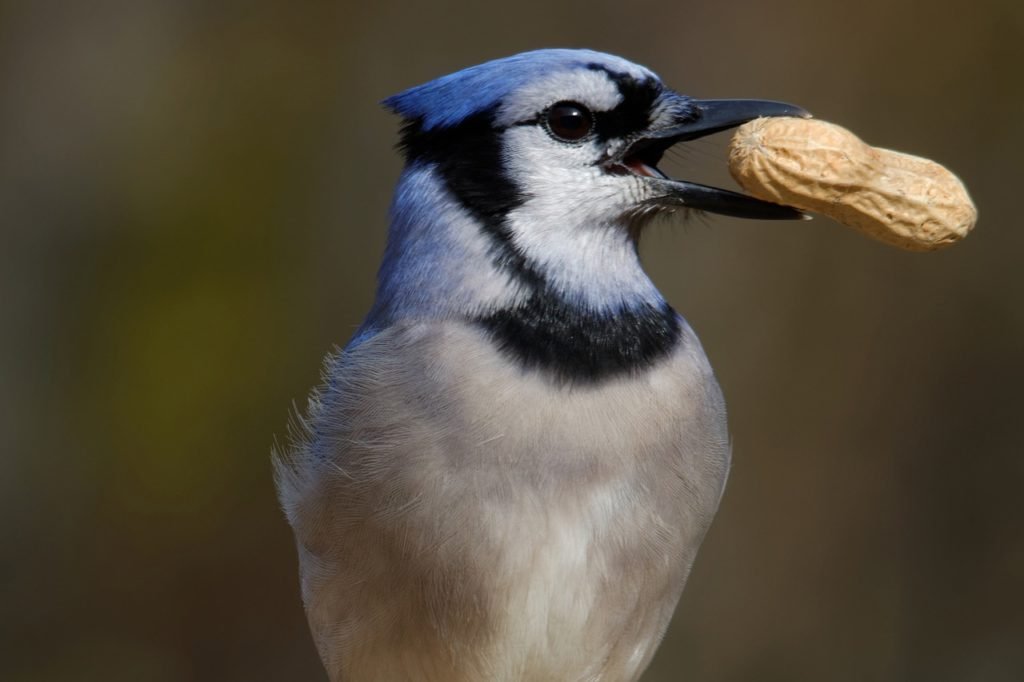
Cracked corn
Many larger birds love the taste of corn. They include pheasants and turkey, quail, jays, doves, grosbeaks, grouse, and even cranes!
Keep in mind, though, that corn spoils quickly, so never spread too much, and be sure to clean up whatever’s left over. Also, don’t use seed corn (usually dyed red), as it’s been treated with fungicides that can also sicken or kill birds.
Millet
The doves won’t be crying when you help them stock up on millet! Other fans of this grass seed include towhees, buntings, sparrows, finches, buntings, and even wild turkey.
This is a small seed and works best in tray feeders, as well as hoppers and tube feeders. It’s high in protein starch, fiber, and fat. It may not sound like a healthy diet, but all of those are necessary for our feathered friends!
Conclusion
Treating our feathered friends to birdseed helps them stay healthy while also adding life and beauty to our yards. Find out what birds pass through your area and during what part of the year, and invest in an appropriate feeder and seed. They’ll love you for it!

